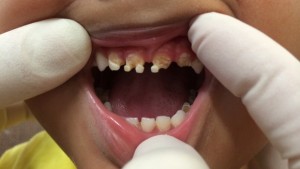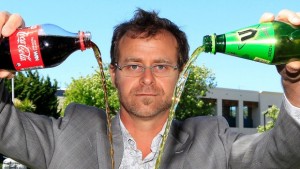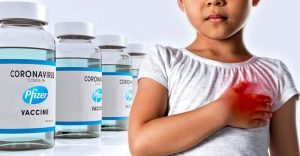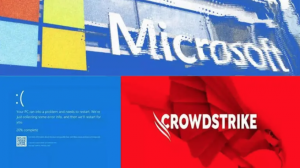Sugary drinks and junk food blamed as kids have rotten baby teeth pulled out


Children as young as 18 months old are having multiple rotten teeth pulled out as parents feed toddlers soft drinks through sipper bottles, and chocolate biscuits and Milo as bedtime treats.
Dentist and veteran anti-sugar lobbyist Rob Beaglehole said he pulled several teeth on Monday from an 18-month-old, and had once treated a 2-year-old who had been drinking Coke from a baby bottle. The child’s teeth had dissolved down to the gum line and were bleeding.
Beaglehole, a father of two and principal dental officer for Nelson Marlborough District Health Board, recently extracted 11 teeth from a 3-year-old whose parents had let him drink Coke from a sipper bottle to “keep him happy”.

Another 3-year-old needed four stainless steel crowns, had four teeth pulled and was given four fillings the child’s parents put Milo in a baby bottle to sip on overnight.
All these procedures, performed under general anaesthetic, cost the Nelson Marlborough DHB about $4000 each, and none of them needed to happen, Beaglehole said.
Each year 35,000 children aged under 12 have rotten teeth extracted because of excessively sugary diets – mainly from sugary drinks and other junk foods.
@CarrickGrahamNZ I say to the parents please don’t give your child any more sugary drinks. They say “but the All Blacks drink them…”
— Rob Beaglehole (@robbeaglehole) July 27, 2015
Wellington dietitian Andrea Palmer said children should drink water throughout the day, although fruit juice and other soft drinks were acceptable if they were part of a set meal and were not consumed constantly.
Children start losing their baby teeth naturally around the age of 6, but having the process fast-tracked by decay and abscesses can have dire consequences for children’s schooling, and for their prospects as adults.
Struggling through school with the pain and distraction of rotting teeth could cause behavioural and development problems, while the early loss of baby teeth could cause adult teeth to grow irregularly and trigger the need for braces and other orthodontic interventions, Beaglehole said.
In its 20-year review of dental admissions to hospitals, a Ministry of Health-commissioned report found a fourfold increase in admissions between 1990 and 2009, with the biggest spike in admissions from children aged under 8. There were higher admission rates for Maori and Pacific people, and those living in the poorest areas.
“Generally, the poorer you are the more holes you have and the more teeth you have missing. It’s a socioeconomic disease and it’s heartbreaking for everyone involved, but it’s entirely preventable,” Beaglehole said.
Junk food advertising had huge sway over children’s diet.
“Our kids are watching their sporting heroes slugging back bottles of sports drinks containing three days’ worth of a child’s daily recommended amount of sugar. If we want to protect our kids and address this health crisis, the first step needs to be restricting advertising of junk food directly to our children.”
Earlier this month Health Minister Jonathan Coleman ruled out a tax on sugar-laden products, saying exercise and education should be the focus in efforts to reduce obesity.
Over the next two months, Coleman plans to recommend a set of actions to address the nation’s sugar problem, and Beaglehole said the minister should look to introduce measures to tackle the marketing of sugary drinks and junk food, in the same way tobacco and alcohol were treated.
However, Palmer disagreed that junk food restrictions or sugar taxes were the answer. “We do have too much sugar, but if we use sugar wisely we can have it as part of our diet.”
SPOONFULS OF SUGAR
* A standard 350mm can of fizzy drink can contain as many as 10 teaspoons of sugar, and the same amount of fruit juice can have 12 teaspoons.
* New Zealand is the 11th largest consumer of soft drinks, including fizzy carbonated drinks, concentrates such as cordial, juice, sports and energy drinks, bottled waters and ready-to-drink tea and coffee.
* Kiwis, on average, consume about 54 kilograms of sugar a year, equivalent to 37 teaspoons of sugar a person every day.
* In 2014 Kiwis drank a total of 518.30 million litres, up from 515m litres in 2013.
Source








